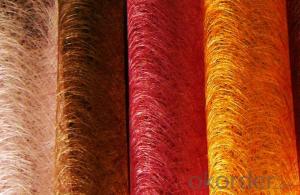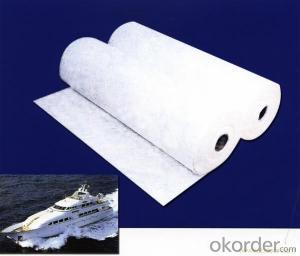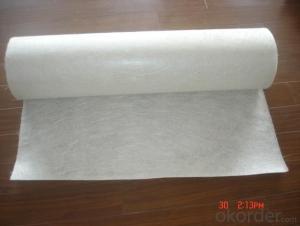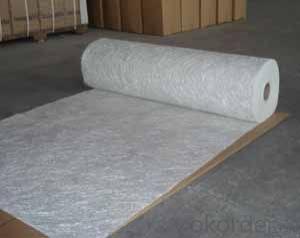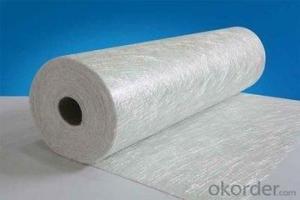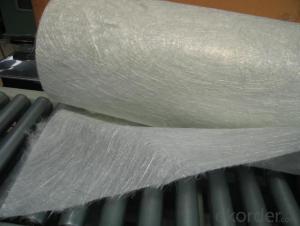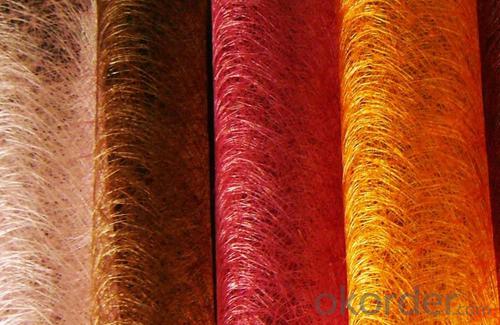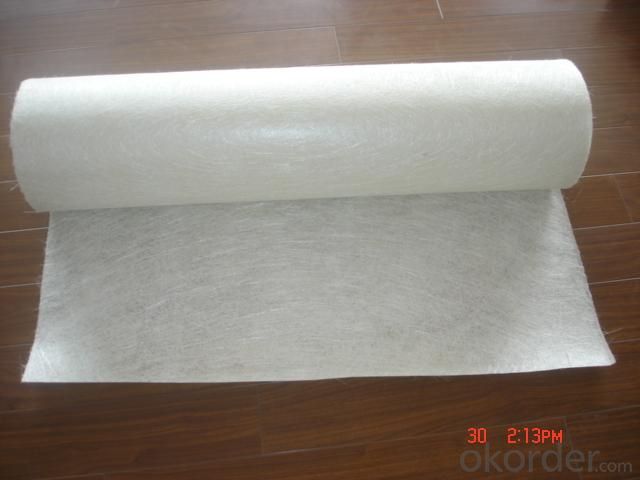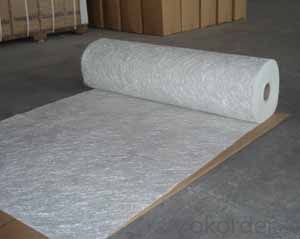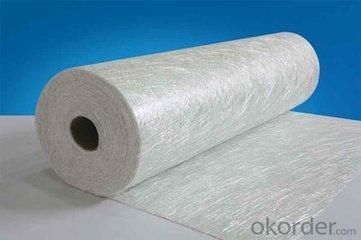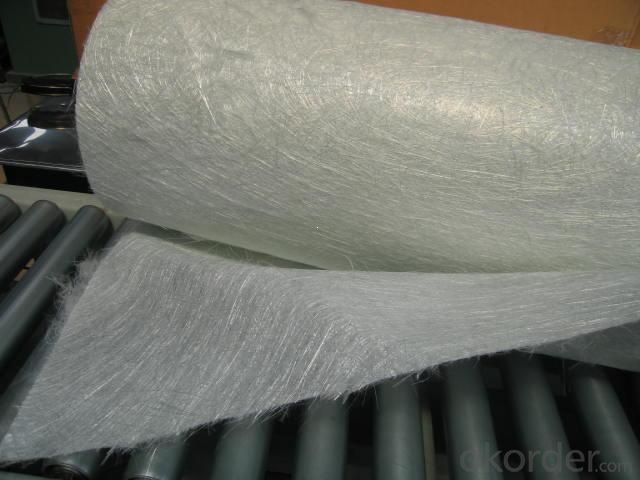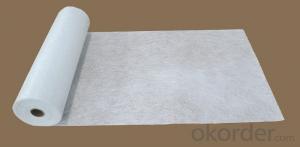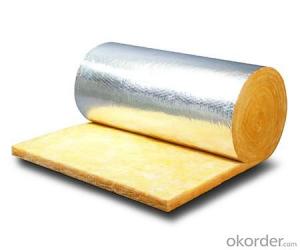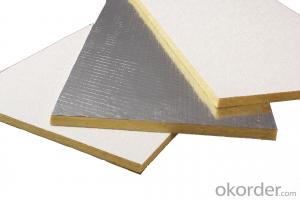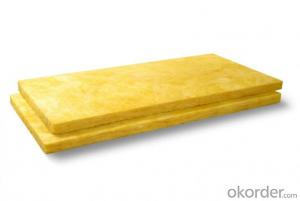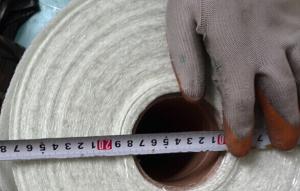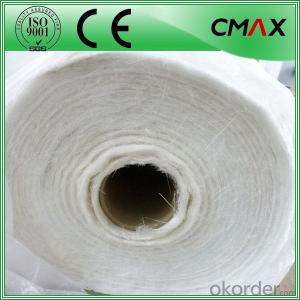Fiberglass Mat Tissue Chopped Strand Mat/Fibre Glass Chopped Strand Mats
- Loading Port:
- Tianjin
- Payment Terms:
- TT OR LC
- Min Order Qty:
- 100 m.t.
- Supply Capability:
- 20000 m.t./month
OKorder Service Pledge
Quality Product, Order Online Tracking, Timely Delivery
OKorder Financial Service
Credit Rating, Credit Services, Credit Purchasing
You Might Also Like
Quick Details
| Technique: | Chopped Strand Fiberglass Mat (CSM) | Dimensions: | 450gsm | Mat Type: | Continuous Filament Mat |
| Fiberglass Type: | E-Glass | Softness: | softness | Place of Origin: | Jiangxi, China (Mainland) |
| Brand Name: | cnbm | Model Number: | 450gsm | color: | white |
| fiberglass type: | E glass | product: | e-glass powder chopped stand mats | binder: | powder or emulsion |
| width: | 1040 or 1270mm, as your requirement | weight: | 30 or 45kg/roll | paper tube diameter: | 90mm |
| outer diameter of roll: | 256mm | packing: | plastic film+carton box + pallet |
Packaging & Delivery
| Packaging Details: | plastic film+carton box + pallet |
| Delivery Detail: | 15-20days |
Specifications
1.e-glass powder chopped stand mats
2.binder:power or emulsion
3.width:1040mm or 1270mm
4.weight:450gsm
Picture
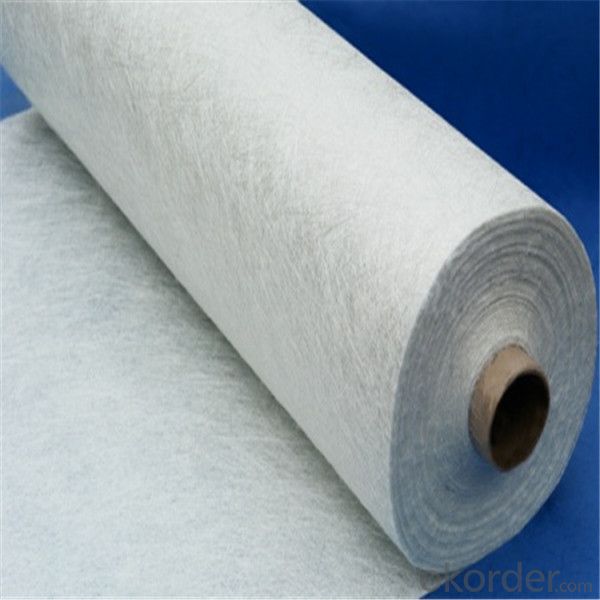
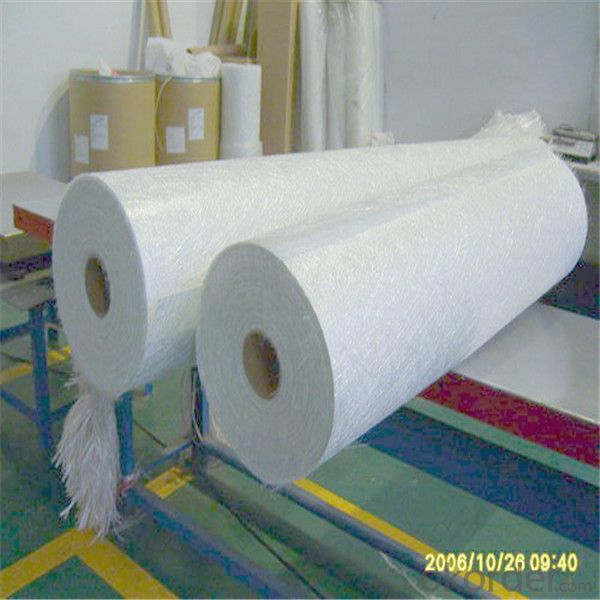
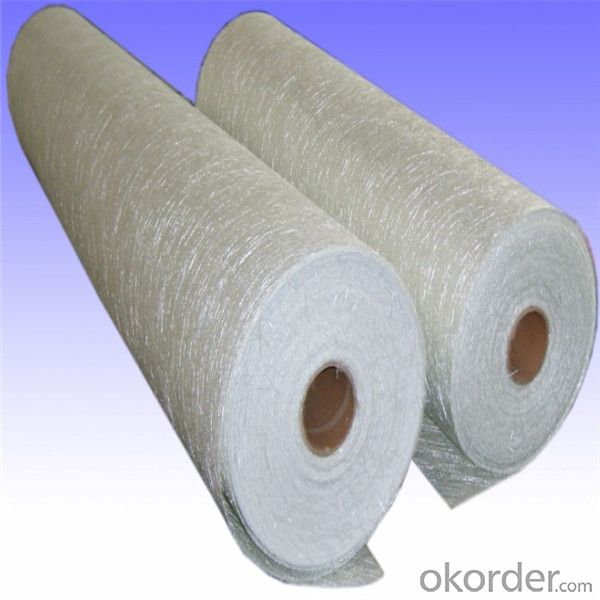
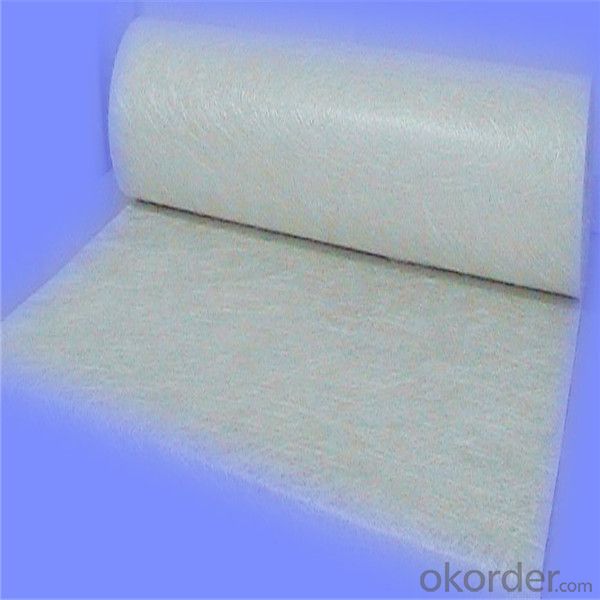
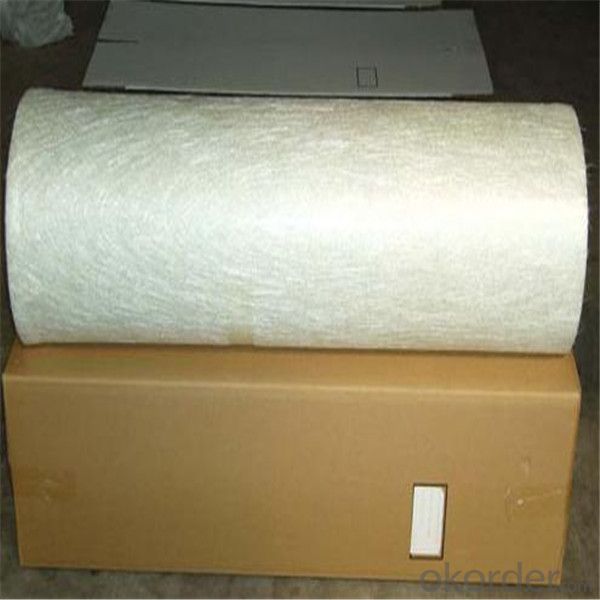
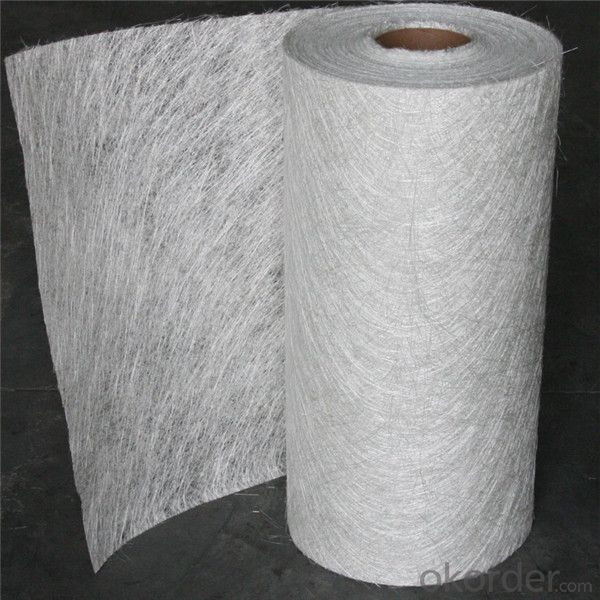
- Q: Is fiberglass mat tissue suitable for underground applications?
- Fiberglass mat tissue is perfect for use underground. This material is widely utilized in various industries like construction, infrastructure, and plumbing because of its exceptional strength, durability, and ability to resist environmental factors. Underground environments often present difficulties such as moisture, high humidity, and corrosive substances, which can compromise traditional materials. However, fiberglass mat tissue is specifically designed to endure these conditions, making it an excellent choice for underground applications. Moreover, its non-combustible nature and resistance to chemicals ensure it is a dependable option for areas where fire safety is a concern. In conclusion, fiberglass mat tissue is a versatile and reliable material that can effectively endure the challenges of underground environments.
- Q: How does fiberglass mat tissue perform in terms of UV resistance?
- The UV resistance of fiberglass mat tissue is generally good. UV resistance refers to a material's ability to endure the harmful consequences of ultraviolet radiation without deteriorating. Fiberglass mat tissue is typically made by combining fiberglass and a binder material, which gives it strength and integrity. The fiberglass in the mat tissue inherently possesses UV resistance. Fiberglass is recognized for its durability and its capability to resist deterioration caused by UV exposure. It is a non-absorbent material that does not soak up UV radiation, making it less prone to damage from the sun's rays. Moreover, certain manufacturers may apply a UV-resistant coating or treatment to enhance the UV resistance of the fiberglass mat tissue. This additional coating or treatment offers extra protection against the harmful effects of extended UV radiation exposure. In general, fiberglass mat tissue performs admirably when it comes to UV resistance. It is a sturdy material that can endure the harmful consequences of UV radiation, making it suitable for situations where prolonged exposure to sunlight is anticipated. However, it is important to note that the specific UV resistance of fiberglass mat tissue can vary depending on factors such as the manufacturing process, the quality of materials used, and any additional coatings or treatments applied.
- Q: What are the typical dimensions and roll sizes of fiberglass mat tissue?
- The typical dimensions of fiberglass mat tissue can vary, but a common size is around 3 feet wide and can range from 50 to 500 feet long. Roll sizes may also vary, but they are often found in standard lengths of 100 or 200 feet.
- Q: Can fiberglass mat tissue be used for marine applications?
- Yes, fiberglass mat tissue can be used for marine applications. Fiberglass mat tissue is commonly used in the marine industry for various purposes such as boat construction, repairs, and maintenance. It provides excellent strength, durability, and resistance to water, making it an ideal material for marine applications. Fiberglass mat tissue is lightweight, easy to work with, and can be easily molded or shaped to fit specific requirements. It is also resistant to corrosion from saltwater and other harsh marine environments. Overall, fiberglass mat tissue is a reliable and versatile material that is commonly used in the marine industry.
- Q: Does fiberglass mat tissue require any special tools for installation?
- Special tools may be needed for installing fiberglass mat tissue. These tools may include a utility knife or scissors for cutting the mat to the desired size, a roller or brush for applying adhesive or resin to secure the mat to the desired surface, and safety equipment like gloves and goggles to protect the installer from potential dangers. Furthermore, certain installations may necessitate the use of a heat gun or torch to activate or cure the resin. To ensure proper installation and ascertain if any special tools are necessary, it is crucial to carefully read and adhere to the manufacturer's instructions and recommendations for the specific fiberglass mat tissue being used.
- Q: What are the recommended storage and handling practices for fiberglass mat tissue?
- When it comes to the storage and handling of fiberglass mat tissue, there are a few recommended practices that should be followed to ensure its integrity and longevity. 1. Storage: It is important to store fiberglass mat tissue in a clean and dry environment. This helps prevent any moisture or dirt from damaging the material. Ideally, it should be stored indoors away from direct sunlight and extreme temperatures. 2. Handling: Fiberglass mat tissue is a delicate material that can be easily damaged if not handled properly. It is recommended to wear protective gloves and safety glasses when handling it to prevent any injuries. Additionally, it should be handled with care to avoid any tears or creases that may compromise its performance. 3. Transportation: During transportation, it is crucial to pack fiberglass mat tissue in a way that minimizes the risk of damage. It should be securely packaged and protected from any potential impact or vibration. If possible, it is best to transport it in a dedicated vehicle or container to ensure its safety. 4. Avoid contact with chemicals: Fiberglass mat tissue should not come into contact with chemicals such as acids, alkalis, or solvents. These substances can cause degradation and weaken the material. It is important to handle it with clean hands and avoid any contact with substances that may be harmful. 5. Follow manufacturer's guidelines: It is always advisable to follow the specific recommendations provided by the manufacturer regarding the storage and handling of fiberglass mat tissue. Different manufacturers may have slightly different requirements, and it is important to adhere to them for optimal performance and longevity. By following these recommended storage and handling practices, you can ensure that fiberglass mat tissue remains in good condition, ready for its intended use.
- Q: Can fiberglass mat tissue be used for repairing fiberglass fenders?
- Yes, fiberglass mat tissue can be used for repairing fiberglass fenders. Fiberglass mat tissue is a versatile material that is commonly used in fiberglass repair work. It is often used as a reinforcement layer to add strength and durability to the repaired area. When repairing fiberglass fenders, the damaged or cracked area can be repaired by applying a layer of resin and then laying the fiberglass mat tissue over it. The mat tissue is then saturated with additional resin to create a strong bond and ensure a smooth finish. This process helps to restore the structural integrity of the fender and provide a seamless repair. However, it is important to note that the success of the repair depends on the extent of the damage and the skill of the person performing the repair.
- Q: What are the potential health hazards associated with working with fiberglass mat tissue?
- Potential health hazards associated with working with fiberglass mat tissue include skin irritation, respiratory issues such as coughing and wheezing, eye irritation, and allergic reactions. Long-term exposure to fiberglass fibers can also lead to a condition called fiberglass lung, which is characterized by chronic coughing, chest tightness, and difficulty breathing. It is important to use proper protective equipment, such as gloves, goggles, and a respirator, when working with fiberglass mat tissue to minimize these risks.
- Q: Can fiberglass mat tissue be used for ballistic protection?
- No, fiberglass mat tissue cannot be used for ballistic protection. It is not designed or tested to withstand the high-velocity impact of bullets or projectiles. Ballistic protection requires specialized materials such as Kevlar, aramid fibers, or ceramic plates that are specifically engineered to provide adequate protection against ballistic threats.
- Q: What is the thermal stability of fiberglass mat tissue?
- The thermal stability of fiberglass mat tissue refers to its ability to withstand high temperatures without experiencing significant degradation or loss of its physical properties. Fiberglass mat tissue is typically made from woven or non-woven glass fibers, which are known for their excellent thermal resistance. Fiberglass mat tissue can typically withstand temperatures ranging from around 100°C (212°F) to 500°C (932°F) depending on the specific type and composition. At these temperatures, the glass fibers maintain their strength, dimensional stability, and insulation properties. The thermal stability of fiberglass mat tissue is important in various applications where exposure to high temperatures is expected. For example, it is commonly used in the construction industry for insulation purposes in buildings, as it is capable of withstanding the heat generated by HVAC systems or fire. In addition, the thermal stability of fiberglass mat tissue is also crucial in industries such as automotive, aerospace, and marine, where it is used for heat shielding, fire protection, and insulation in engine compartments, exhaust systems, and other high-temperature environments. Overall, the thermal stability of fiberglass mat tissue makes it a reliable and durable material choice for applications requiring resistance to high temperatures. Its ability to maintain its properties under extreme heat conditions ensures long-lasting performance and safety in various industries.
Send your message to us
Fiberglass Mat Tissue Chopped Strand Mat/Fibre Glass Chopped Strand Mats
- Loading Port:
- Tianjin
- Payment Terms:
- TT OR LC
- Min Order Qty:
- 100 m.t.
- Supply Capability:
- 20000 m.t./month
OKorder Service Pledge
Quality Product, Order Online Tracking, Timely Delivery
OKorder Financial Service
Credit Rating, Credit Services, Credit Purchasing
Similar products
Hot products
Hot Searches
Related keywords
